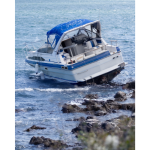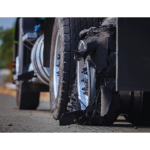The statistics are startling. In 2020, there were 98,778 car crashes in Arizona, and most of these (71,611) happened in Maricopa County. About every 13 minutes, someone in Arizona was injured in a car crash—and every eight hours, someone died because of a car crash. Seventy percent of the crashes resulted only in property damage. But that doesn’t mean these were trivial. All told, motor vehicle crashes resulted in $17.2 billion in economic losses to the state.
Given the frequency of car crashes in Phoenix and its surrounding cities, let’s review the answers to questions that every car crash victim should know.
What Are the Immediate Concerns?
First, if you’ve been involved in a car crash, always seek medical attention as soon as possible. If you have acute injuries, call 911 and consider going to the hospital or urgent care.
Even if you don’t seem to have any obvious medical issues, still get checked out within a day or so. Make sure you don’t have any injuries that were less apparent but still need care. It is very common for car crash injuries to manifest days or weeks after the event. And if your condition worsens, get medical treatment immediately.
This is obviously important for your health. But it’s also relevant for any legal action arising from the crash.
If you sustain injuries, the police may want to charge the driver for vehicular assault. And if you file a lawsuit relating to the crash, having sought proper medical care will help prove that you were injured and deserve appropriate compensation.
What Are the Damages?
As we’ve said, you can be compensated for damages.
That includes compensation for your vehicle, property lost in the vehicle at the time of the crash, and other damage.
It includes coverage for your physical injuries, the cost of medical care, lost wages, and other direct expenses. It includes compensation for loss of affection and psychological injuries. In rare cases, you may be eligible for punitive damages.
Depending on the case, the police and prosecutor may bring charges against the responsible driver. They can increase penalties for certain cases, such as when a driver was intoxicated, if the victim was vulnerable (e.g., a child), or if you sustained serious injury.
While convictions can result in victim compensation, a criminal case (no matter what the result) does not prevent you from filing your own lawsuit.
Who is To Blame?
Note that we’ve been referring to a “car crash” rather than an accident. That’s because, statistically, researchers have concluded that most car crashes are preventable. Crashes happen because the driver made a conscious choice. Crashes are often caused because a driver:
- was distracted (e.g., texting while driving)
- not feeling well enough to drive (e.g., intoxicated or sleepy) or
- drove recklessly (e.g., speeding)
Therefore, these aren’t accidents; the driver should pay for the damage they caused.
At the same time, serious car crash litigation can be more complex than it seems at the time of the crash. For example, if the other driver was under the influence of alcohol, those who gave them the alcohol could shoulder some responsibility for the crash.
Or perhaps a mechanical defect in your car made your injuries more serious than they otherwise would have been. If that’s the case, you may receive compensation from those responsible parties, too.
And it’s worth knowing that Arizona is a “comparative fault” state. Even if you bear some responsibility for the accident, you can still sue someone for damages to cover their liability. (Your compensation would be reduced by the amount relating to your role in the crash.)
What Should You Do Now?
Get a lawyer to review your case and help you decide the best path forward.
In the meantime, your safety is the priority. But if it is safe to do so, document the accident as best you can. Take pictures of any damage to your vehicle and other property. Document (with photos and notes) where the accident occurred, describing road conditions, weather, and traffic issues. Include your impressions of the people involved and how they acted.
You can tell the police and others what happened, but avoid making any conclusions as to “who is to blame.” That’s for the lawyers to decide.
Maintain meticulous records of the accident, your medical care, and anything accident-related. For example, keep receipts relating to any expenses (from replacing damaged property or rental cars) and calendar all medical care you received and any accident-related missed work.
And then—if you’re the victim of a car crash—don’t wait. Send a message to the Stewart Law Group (or call us at 602-548-3400) to schedule an initial confidential consultation with one of our attorneys. Call today.




